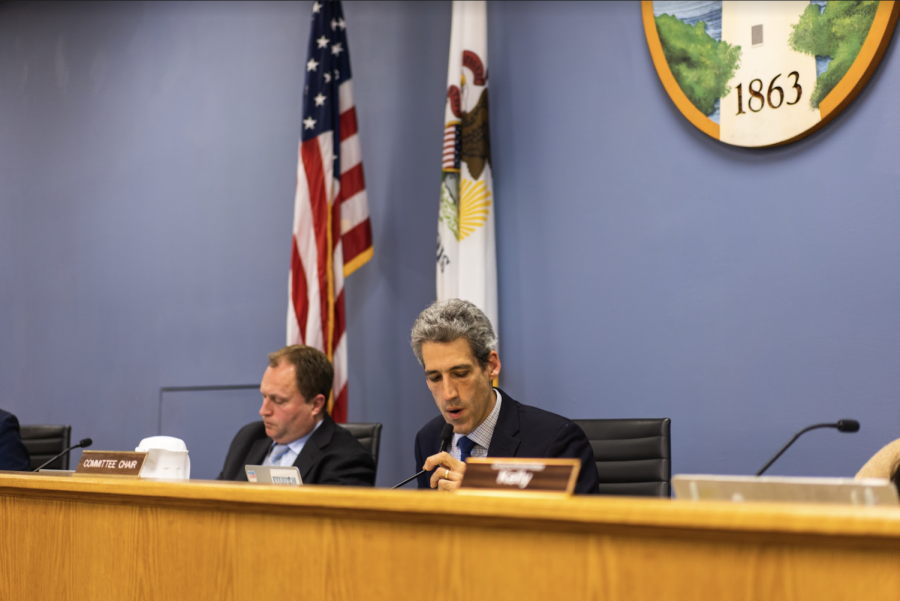City Council greenlights annual $1 million of real estate transfer tax funds for reparations
Jonah Elkowitz/Daily Senior Staffer
City Council approved using $1 million of real estate transfer tax funds annually over the next ten years to finance the city’s reparations program.
November 16, 2022
City Council voted early Tuesday morning to allocate $1 million of real estate transfer tax revenues annually over the next 10 years to fund its reparations program.
The funds will come from the transfer tax on sales of real estate valued over $1.5 million, which will supplement revenues from the city’s 3% cannabis tax to fund reparations. The tax on cannabis sales was originally meant to fund reparations programs, including the city’s Restorative Housing Program. But Evanston only has one dispensary.
Only 16 of 122 eligible recipients were paid in the city’s first round of reparations payments, which grant each person $25,000 to use toward home mortgage assistance, home improvement, home purchase or a combination.
The city expected to have three cannabis dispensaries by the time the program started, according to a city memorandum. However, Illinois delayed the distribution of dispensary licenses until July. The city is currently in touch with one prospect that will research the possibility of an Evanston location.
The memorandum said the Reparations Committee chose to fund reparations through the real estate transfer tax because of its relatedness to real estate discrimination and redlining, which have contributed to the racial wealth gap. Revenues from the tax are currently deposited into the city’s general fund.
The real estate transfer tax charges $7 for every $1,000 in sales between $1.5 to 5 million and $9 for every $1,000 on sales over $5 million. The city collected $3,184,200 in transfer tax revenues from sales over $1.5 million in 2021 and has collected $1,726,300 so far in 2022.
Earlier in the meeting, councilmembers voted to table a proposal to use $5 million in ARPA funding to support economic development issues related to reparations, such as funding for business districts in historically Black neighborhoods.
Email: saulpink2025@u.northwestern.edu
Twitter: @saullpink
Related Stories:
— Panelists address resident skepticism at reparations town hall Saturday
— City Council allocates additional funding from cannabis tax to reparations program
— Community members criticize anti-Black workplace conditions at City Council



